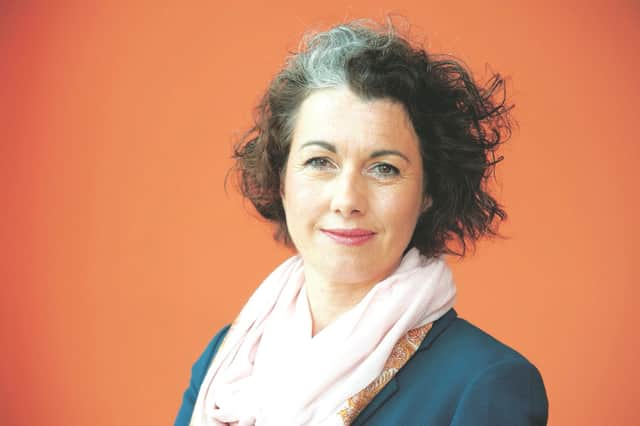Call for "trauma-trained" judges after report finds child sex abuse survivors are failed by courts


Calls have been made by specialist sexual violence and abuse services (SSVSS) to replace juries in child sexual abuse trials with judges trained in trauma after an inquiry found current guidance given to jurors was “insufficient”.
Details of survivors' experiences were published today as part of a dedicated All Party Parliamentary Group (APPG) for adult survivors of childhood sexual abuse chaired by Rotherham MP Sarah Champion (above) which has heard from professionals and nearly 400 survivors.
Advertisement
Hide AdAdvertisement
Hide AdMs Champion said the report exposed the Governments’ poor record on achieving justice for survivors.
The group also found judges were failing to issue Criminal Compensation Orders at the conclusion of a sexual abuse trial — with only 26 issued in 2017.
Of those awarded, some were as low as £20 for the “rape of a male child under 13”.
The report also found seven in ten survivors were not given appropriate support when going to court as a witness, survivors were forced to take annual leave to attend court and two in five survivors were not given the opportunity to give evidence remotely or behind a screen.
Advertisement
Hide AdAdvertisement
Hide AdMs Champion said: “Survivors should not face an ongoing battle to find out information about the court process or to get the special measures they are entitled to, enabling them to give evidence with confidence.
“Without these steps, is it any wonder many people drop out of the process altogether?
“The Government is failing to give survivors confidence that their case will get a fair hearing at trial.
“Even worse, once the court process is over survivors say they feel abused by the very system they hoped would support them.”
Advertisement
Hide AdAdvertisement
Hide AdThis is the third and final report the APPG inquiry on child sex abuse survivors’ experiences of accessing support and pursuing justice.
Ms Champion said the latest report detailed “professionals’ poor communication with survivors about the court process”, the issues survivors faced in attending as witnesses, the lack of after-court support and the “byzantine process of applying for compensation”.
The report said child sex abuse juries must have all of the “necessary information in order to make a fair and reasoned judgement, including knowledge of the impact of trauma and its impact on memory and the ability to recall traumatic events with accuracy, as well as information dispelling rape myths about clothing or sexualised behaviour, for example”.
The report added: “Alarmingly, the inquiry heard concerns from SSVSS that the current information and guidance provided to juries in child sexual abuse cases is insufficient.
Advertisement
Hide AdAdvertisement
Hide Ad“If Government is unable to guarantee that juries will be provided with adequate information to make a reasoned judgement, some SSVSS argued that juries should be replaced by specialist sexual violence and abuse courts, replete with judges specifically trained in the science of trauma and able to recognise rape myths.”
Further issues raised included “unnecessarily intrusive cross-examination” and defence barristers using character witnesses to attest to the defendant’s good standing — which survivors and SSVSS said were “irrelevant”.
They argued child abusers were often “sophisticated at manipulating and grooming other adults and are consequently regularly people of good-standing or character within their local community”.
Survivors also felt it was unfair that abusers could change their plea on the day of the trial, stating that this returned power to the abuser who was then able to frustrate the justice process for months or years while the prosecution prepared for trial.
Advertisement
Hide AdAdvertisement
Hide AdThose taking part in the inquiry also felt “discarded” by the criminal justice system after they had “served their purpose” at the conclusion of the trial.
A number spoke of the value of having an Independent Sexual Violence Adviser (ISVAs) who was able to provide specialist support — but others did not know about, or had not bee offered, access to an ISVA.
The APPG has made several recommendations to the Government, including statutory paid leave for witnesses, court staff being given training in trauma and an automatic right to give live evidence from behind a screen or via videolink instead of at the judge’s discretion.
The APPG said it had already seen some successes, with the Government having recently adopted its recommendation for a single point of contact and a pledge card for police to give to survivors with details of their key rights and information about where they can access further support.
Ms Champion said she would continue to campaign for the uptake of further recommendations and for increased funding for SSVSS.